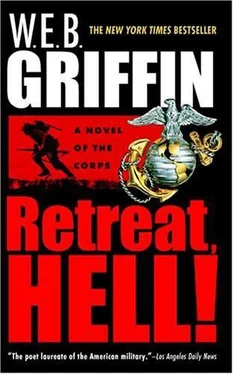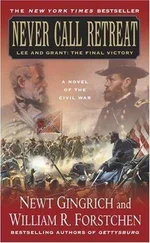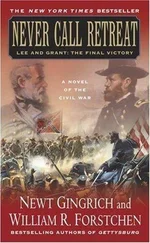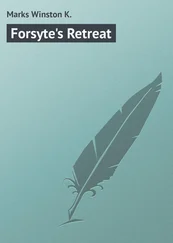"No, silly. I meant see if I could get a job as a stewardess. Maybe I could get a recommendation from you at Trans-Global? Absolutely no experience, but willing to learn. Free to travel. No family ties."
"I thought you said your family was in Arkansas."
"They were annoyed—Dick's family and mine, both—when I wouldn't go 'home' when Dick shipped out. There were words then. And when I wouldn't go home . . . after Dick died, there were more words."
"I'm sorry to hear that," Pick said.
"And I'm sorry I told you," she said, and stood up. "I really am. I came here to see what I could do for you, and here I am, telling you all about my woes." "Haven't you ever heard 'misery loves company'?"
"Yeah, but I don't think it means what you're suggesting."
"What do you think it means?"
"It means that people that complain, whine a lot, like to be around people who complain and whine a lot."
"I think people like you and me, Mrs. Mitchell, who have lost the most important person in our lives, have every right to feel a little sorry for ourselves. This miserable person, Mrs. Mitchell, hopes that your standing up doesn't mean you're going to leave."
She met his eyes again.
Jesus, she looks right through me!
"I was about to say 'I have to run,' " she said. "That would have implied I have somewhere to go. I don't, really. So if you'd like me to stay awhile, Major Pickering, I'd like to."
"Pick," he said. "My name is Malcolm, but nobody calls me that."
She put out her hand.
"Babs," she said. "How do you do?"
"You mean aside from being in the loony bin?"
She giggled and looked at him again and smiled, and Pick realized he was holding on to her hand longer than he should be. He quickly let go. He saw a faint blush on her face, and decided that proved she had picked up on the hand-holding.
You may relax, Mrs. Babs Mitchell. The one thing this miserable sonofabitch is not going to do is one fucking thing that will give you any reason to suspect that I'm even thinking of anything that could resemble a pass.
[SEVEN]
Room 39A, Neuro-Psychiatric Ward
U.S. Naval Hospital
San Diego, California
13OS 31 October 195O
"I was wondering when you were going to show up," Major Malcolm S. Pickering said to Lieutenant Patrick McGrory, MC, USN, when McGrory came into the room.
"I'm flattered," McGrory said. "I didn't think you cared. Especially after I saw you and your visitor in the O Club."
"It was lunchtime, I offered to take her to lunch," Pick said. "That's all there was to that. No, that's not true. Tell me how much I have to tell you about my terrible ordeal to get a six-hour pass the day after tomorrow."
"What the hell was it, lust at first sight?"
"The lady is burying her husband. She asked me to attend the service and the funeral. Jesus Christ, McGrory!"
"She told me she was a Marine pilot's wife. She didn't say he was dead."
"He flew a Corsair off the Badoeng Strait and then into the ground," Pick said. "He was a very nice guy. She doesn't have any family, and I intend to be there with her when she buries him. Don't fuck with me on this, Doc."
"I won't even demand that you describe your ordeal, Pick," McGrory said. "You probably wouldn't tell me the truth anyway. I want you to talk about it with me when you want to, not before."
"I get the pass?"
McGrory nodded. "Thank you."
"I don't know if I'm saying this as your friend or your physician, Pick, but either way, I think it has to be said."
"What has to be said?"
"There's what I call the boomerang syndrome in the relations between men and women. Most commonly it's when a divorced guy, after lifting the skirts of every bimbo in town, finds and falls in love with a twin—physically or psychologically, and often both—of his detested ex-wife. When there is a death— in this instance, there are two deaths—the woman, whether she's aware of it or not, hungers for a strong male shoulder to lean on, and the man—although he may hate himself for it—starts looking for a replacement for his lost love."
"It's not like that here, Doc," Pick said.
"You're on goddamned thin ice, Pick, in a situation like this. If you don't want to hurt the woman, keep your distance. If you don't want to get kicked in the balls again—this widow is not your late girlfriend—keep your distance."
"How did you hear about my late girlfriend?"
"In my first transoceanic telephone call," McGrory said.
"Your father told me. They're sending her body back, too, and he thought I should know." "Were you going to tell me about that, McGrory?" Dr. McGrory chose to ignore the question.
"If you're going to be going on pass the day after tomorrow," Dr. McGrory said as he took his notebook from his shirt pocket, "you'll have to have a uniform. I'll give you an authorization for the officers' sales store, and to prove what a really good guy I am, I'll call the manager—a Jewish boy named Francis Xavier O'Malley— and tell him you're a friend of mine, and really need the uniform tailored by tomorrow at seventeen hundred."
"Were you going to tell me about Jeanette's body, McGrory?"
"That was then, no. This is now, and I just did. They're going to have a formal—what the hell is the word?—'reception ceremony' for it at North Island Naval Air Station in three, four days."
"And am I going to get to go to this 'reception ceremony'?"
"That depends on how you behave when you bury the lady's husband," Dr. McGrory said.
He tore a page from his notebook and handed it to Pick.
"Give that to O'Malley," he said. "And don't let them cut the material too much when they take it in. I have every hope that you'll soon be a little heavier."
Pick chuckled. "I didn't think about that," he said. "I guess I'm now a 42-Skeletal, right?"
"Something like that. I also am entertaining boyish hopes that when we're through burying people, you'll understand that I really am trying to be a friend, and that you'll start talking to me."
"Life is funny, McGrory," Pick said. "The one thing you can be sure of is that you can't predict the future."
Chapter Seventeen
[ONE]
8O23d Transportation Company (Depot, Forward)
Wonsan, North Korea
1335 31 October 195O
"You can look at it now, sir," First Sergeant Jackson J. Jamison said to Captain Francis P. MacNamara. "It's just about done, and I think we have the finest crapper in Wonsan."
"Well, let's have a look at it," MacNamara said, and left his tent and followed Jamison past a long line of three-quarter-ton trucks to the edifice to which Jamison had made reference.
It sat on a small rise in the compound close to—but not too close to; MacNamara had selected the site himself—the men's tents. It had a wooden frame, to which canvas had been nailed.
There was a door at each end, for ventilation. Inside was a four-holer of smooth, unpainted wood. There was a sort of center pole, a sturdy six-by-six timber, to which a box had been nailed. The box held a dozen rolls of toilet paper, half a dozen spray cans of DDT, which would both kill the flies and sort of serve as a deodorant, and a box of candles.
MacNamara walked to the rear of the structure and examined his personally designed waste-disposal system. This consisted of cut-in-half fifty-five-gallon fuel barrels to which handles had been welded. A wooden shelf structure permitted the half-barrels to be slid under the holes in the four-holer. They would be changed twice a day.
Five minutes later, just as Captain MacNamara decided he was very pleased with the latrine he had designed and ordered constructed for his men, First Sergeant Jamison touched his arm and directed his attention to the line of three-quarter trucks down which they had recently walked.
Читать дальше












